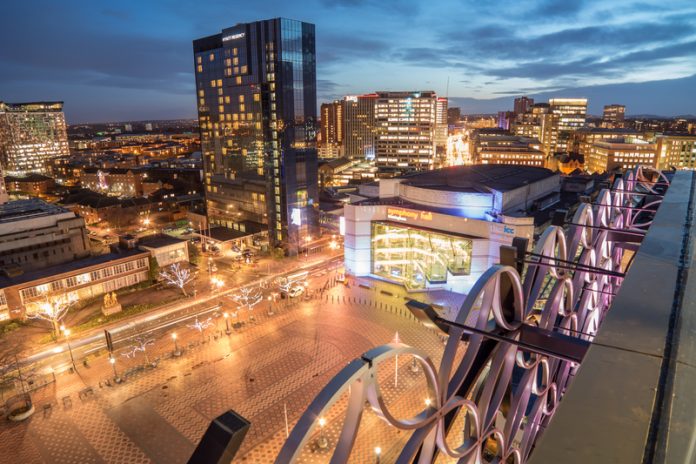A refreshed strategy to create 250,000 jobs by 2030 and boost the local economy has been launched this week in Greater Birmingham
Greater Birmingham launched a fresh strategy to boost the regional economy by £29 billion and create 250,000 private sector jobs by 2030 earlier this week.
The Greater Birmingham and Solihull Local Economic Partnership’s (GBSLEP) new Strategic Economic Plan 2016-2030 envisions a central role for Greater Birmingham in a post-Brexit world as a top global city region and driver of the UK economy, highlighting growing strengths in advanced manufacturing, life sciences, financial and professional services and the digital and creative industries.
At the heart of the plan are three strategic priorities identified as vital to boosting the area’s global competitiveness: Taking greater advantage of global connections through expansion at Birmingham Airport and the arrival of HS2; becoming a world leader in innovation and creativity; and creating stronger conditions for growth locally by addressing key issues such as the skills challenge the area currently faces – particularly within communities in Birmingham and north Solihull, where persistently rates of high unemployment exceed 8%.
Greater Birmingham’s claim as a global business destination
“Greater Birmingham has put its best foot forward in creating a compelling offer for inward investors in recent years, and our track record speaks for itself,” said Steve Hollis, chair of the GBSLEP.
“This is the foundation of our thinking on ‘industrial strategy’ and lays out what we must do now to build on our status as the major driver of the UK economy outside of the capital, take advantage of the opportunities presented by HS2 and stake our claim as a truly global business destination.”
The strategy for 2016 to 2030 updates previous targets set by the GBSLEP in 201, with new aims reflecting the necessary contribution from Greater Birmingham if the West Midlands Combined Authority (WMCA) is to meet ambitious goals for its three-LEP remit, which covers Greater Birmingham, the Black Country and Coventry & Warwickshire.
“Following the Brexit vote, it has never been more necessary to ensure growth in job creation, output and employment,” Hollis added. “The LEP Board is absolutely clear that the opportunities of a growing economy are extended to everyone that lives and works here. This decisive response will ensure Greater Birmingham can continue to thrive.”
Brexit ignites greater need for international competitiveness
Previous plans have paved the way for the delivery of a £379m Growth Deal, currently funding a range of transport, housing and skills projects across the area, and the £275m Enterprise Zone Investment Plan which has unlocked the Paradise mixed-use city centre development and the Growth Hub business support service.
“With Brexit igniting an even greater need to be known globally as a place to do and grow business, a place where world-class talent and markets can be accessed quickly and easily – it is vital that the public and private sectors continue to work together to build an offer that stands up against the best, truly global cities,” added Birmingham City Council leader John Clancy.
“This plan clearly sets out what must be done and why. It is the blueprint for our own regional industrial strategy and we must use it as our guide if we are to make a difference to the lives of everyone in our region.”
Now, working with the WMCA and the Midlands Engine among others, GBSLEP has to devise an implementation plan for delivery in the New Year.











